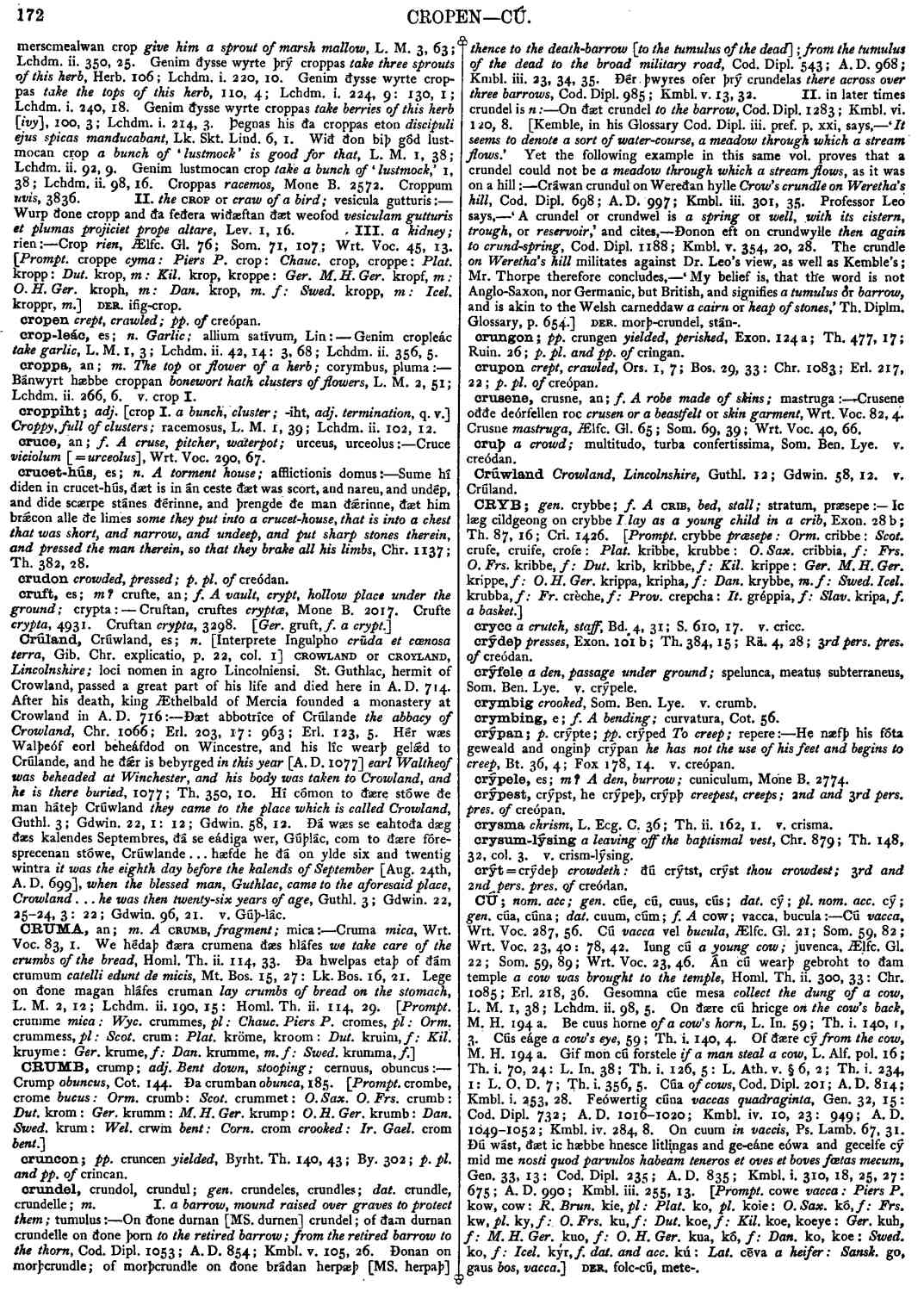CÚ
- noun [ feminine ]
-
Cú
vacca
- Wrt. Voc. 287, 56.
-
Cú vacca vel
bucula
- Ælfc. Gl. 21 ;
- Som. 59, 82 ;
- Wrt. Voc. 23, 40 ;
- 78, 42.
-
Iung cú
a young cow
juvenca
- Ælfc. Gl. 22 ;
- Som. 59, 89 ;
- Wrt. Voc. 23, 46.
-
Án cú wearþ gebroht to ðam temple
a cow was brought to the temple
- Homl. Th. ii. 300, 33 ;
- Chr. 1085 ;
- Erl. 218, 36.
-
Gesomna cúe mesa
collect the dung of a cow
- L. M. 1, 38 ;
- Lchdm. ii. 98, 5.
-
On ðære cú hricge
on the cow's back
- M. H. 194a.
-
Be cuus horne
of a cow's horn
- L. In. 59, ;
- Th. i. 140, 1, 3
-
Cús eáge
a cow's eye
- 59 ;
- Th. i. 140, 4
-
Of ðære cý
from the cow
- M. H. 194a
-
Gif mon cú forstele
if a man steal a cow
- L. Alf. pol. 16 ;
- Th. i. 70, 24 ;
- L. In. 38 ;
- Th. i. 126, 5 ;
- L. Ath. v. § 6, 2 ;
- Th. i. 234, 1 ;
- L. O. D. 7 ;
- Th. i. 356, 5.
-
Cúa
of cows
- Cod. Dipl. 201 ;
- A. D. 814 ;
- Kmbl. i. 353, 28.
-
Feówertig cúna
vaccas quadraginia
- Gen. 32, 15 ;
- Cod. Dipl. 732 ;
- A. D. 1016-1020 ;
- Kmbl. iv. 10, 23: 949 ;
- A. D. 1649-1052 ;
- Kmbl. iv. 284, 8.
-
On cuum
in vaccis
- Ps. Lamb. 67, 31.
-
Ðú wást, ðæt ic hæbbe hnesce litlingas and ge-eáne eówa and gecelfe cý mid me
nosti quod parvulos habeam teneros et oves et boves fætas mecum
- Gen. 33, 13 ;
- Cod. Dipl. 235 ;
- A. D. 835 ;
- Kmbl. i. 310, 18, 25, 27: 675 ;
- A. D. 990 ;
- Kmbl. iii. 255, 13.
Bosworth, Joseph. “CÚ.” In An Anglo-Saxon Dictionary Online, edited by Thomas Northcote Toller, Christ Sean, and Ondřej Tichy. Prague: Faculty of Arts, Charles University, 2014. https://bosworthtoller.com/6771.
Checked: 1